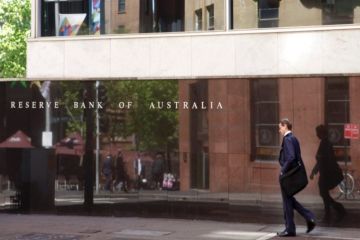When a home buyer doesn't have finance
After nervously waiting weeks to sell your life’s biggest asset – the family home – the price is negotiated, the contracts are inked, and all you need is word that the buyer has their finance approved.
But the news isn’t good. Your agent tells you a bank has rejected your buyer’s loan application.
Or worse, you haven’t heard back from the buyer and the sale is about to become unconditional.
That nightmare became reality for one Yarra Valley resident, when the sale of their three-bedroom house fell through because the buyer couldn’t obtain finance, and kept delaying their promise to provide a letter from the bank to break the contract.
Professional driver Mark, 32, who didn’t want his surname published, said the buyer paid $1000 upfront to secure the property just before Christmas, but failed to pay the deposit after the cooling off period.
The sale was made subject to finance, with a deadline set a month later because of the holiday interruption, and their house was left on the market – under contract – for weeks.
“We don’t know where we sit, what happens if it comes January 22 and legally she has to buy it,” he said.
“I don’t [want] to go down the road of taking her to court to get the money.”
Mark said he couldn’t put a deposit down for a new house until he sold his. He eventually ended the contract after receiving a letter from the mortgage broker, and his home is now back on the market.
It is a familiar story for many Melbourne vendors who sold their homes, only to find the buyer could not obtain finance.
Nelson Alexander sales director Arch Staver believed more subject-to-finance sales had fallen through – particularly in the first home buyer market – at the end of last year because banks changed lending criteria and tightened the belt across the board.
A buyer who received a pre-approval in the middle of last year, he said, may later find the bank had revised down that offer.
Calculations from lender ME show a couple with two children and a combined annual base gross income of $115,000 were able to borrow a maximum of $619,500 – that amount has now dropped to $556,300.
“In the last eight to 12 months, all the major lenders … had been working closely with the [Australian Prudential Regularity Authority] to ensure that lending standards don’t deteriorate when we have a combination of record low interest rates and house price growth,” general manager of credit risk Michael Hendricks said.
“And so part of those processes have been looking at how banks take into account, and make assumptions around, living expenses and types of non-stable income – bonuses and overtime – so really making sure that we maintain a good focus on affordability.”
Aussie Home Loans has recorded a 11 per cent drop in the number of loans to investors over the December quarter compared to the same period in 2014. There was a 6.5 per cent rise in first home owner loans, and a 5.7 per cent jump in purchases by owner-occupiers.
Mortgage Choice spokeswoman Jessica Darnbrough said much of the tightening over the past six months had been around investment policy and pricing.
Some of those changes, such as banks increasing buffers to ensure a buyer can meet the repayments comfortably, have also affected owner-occupiers, she said.
Werribee-based agent James Antonio at YPA Estate Agents said two-thirds of the agency’s sales this year had been subject to finance.
But usually only one or two of the conditional sales fell through a month, he said.
Offers subject to finance weren’t “rock-solid deals”, he said, so it could be difficult for vendors if there were multiple offers on the table.
States
Capital Cities
Capital Cities - Rentals
Popular Areas
Allhomes
More







